Don't Master A Skill.
Career advice for young people.
As children, the most repeated career advice we’re told is to find something we love and “become the best at it”.
Whether it’s mastering Facebook ads, sales skills, writing Python, photography, playing video games, or working on cars.
“The money will follow.”
Unfortunately, this commonly repeated philosophy is completely wrong.
As an example, let's say you’re extremely passionate about sales. You put in the work and you dedicate 3-5 years to become great.
You go through failures and successes, and you learn a lot in the process.
Then you wake up one day and look at yourself in the mirror— and a realization hits you.
You can honestly say you’re in the top 5% of sales skills.
Congratulations!
But… Now what?
It’s time to close that last 4% and graduate to the top 1% of sales skills.
Right?
No. This is completely wrong.
Most people believe you should focus on becoming the best at a skill, but the truth is this is a waste of your valuable time.
As you go through career growth you’ll learn that it’s much easier to close the 1% gap between the 49th to 50th percentile than to close the 1% gap from the 95th to 96th percentile.
Or in other words, as you get better at something you’ll begin to notice it takes more and more effort to push to that next percentile.
So is it really worth pushing all that time and effort to get from the 95th percentile to the 96th percentile?
No— because while most people believe you should focus on becoming the best at one skill, the truth is you’re valued based on your intersection of skills.
If we flip the axes on this equation, we can see that investing your time in advancing your skill level to the next percentile has diminishing returns.
Hours 0 through 100 of learning a new skill will always net you more overall progress towards mastering that skill than hours 10,000 through 10,100— even though it’s the same one hundred hours.
The velocity of new knowledge drastically slows down as you approach mastery, so stop wasting your time trying to be the best at one skill.
Instead, learn new skills to combine together.
Continuing our sales example from earlier, maybe you’re curious about the US healthcare system, and why it’s so broken.
While acting on your curiosity, if you discover you are passionate about fixing the healthcare system, put in the time and become the 95th percentile at understanding the healthcare system.
This new intersection of skills uniquely qualifies you to work in sales roles in various healthcare companies.
Healthcare companies don’t want an amazing sales rep with no healthcare knowledge.
They want you, because you know every in and out of the healthcare system and how their product fits into the market, in addition to being a great sales rep.
Your sales skills + understanding of healthcare = a healthcare sales role.
Building another couple of layers on top of this….
Let’s say you dedicate yourself to learning all about software and you also learn the processes and culture that make Seed to Series A startups run compared to a multi-national public company.
Your skillset stack:
Top 5% of sales skills
Top 5% of healthcare knowledge
Top 5% of understanding software
Top 5% in understanding early-stage startups
Equals: A high-paying sales role at an early-stage MedTech software startup.
But why is this true?
It’s basic algebra, in mastering one skill you put in a ton of time and effort— but you’ll only ever achieve linear growth in skill rarity.
But when you add more than one variable, the equation goes exponential.
We can change this into any combination of skills, let’s say you’re the:
Top 10% of photography
Top 5% of product management
Top 5% of understanding software
Top 5% of understanding social networks
Top 5% of understanding late-stage startups
Well, you’re uniquely qualified to be a Principal+ level product manager role at a late-stage social media photography startup like Snapchat, Instagram, or Pinterest.
The goal is to build a set of skills that are both rare and valuable when intersected.
But, how do you know when you’ve hit this?
There’s a simple method to figure out if you are specialized enough:
Can you list everyone who has the same skill intersections as you?
The goal is to avoid the left side of the sliding scale— and avoid the commodity business of undifferentiated skillsets.
This is because there’s no money to be made in the commodity business.
If you can’t list everyone with the same skill intersections because there are too many— you’re not intersected enough.
On the flip side, if you can’t list anyone with the same skill intersections as you… there probably isn’t any demand for your skill intersections, or conversely, you’re just ahead of the curve.
Life is a balancing act, and your career skills must also be well-balanced.
It’s much more time efficient, easier, and valuable to invest your time in being the top 5% at two skills than investing your time to be the top 0.25% at one skill.
But why do most people young in their careers not optimize for this strategy?
Well, the trademark of exponential equations is they take a while to ramp up.
Become known for being the best at a specific intersection of skills, no matter what you do…
Whether it’s being the best Head of Sales for early-stage U.S. MedTech SaaS startups, or building a reputation as the best product leader for FinTech neo-bank lending startups.
Whatever you do, don’t skip around to companies with little relation to each other.
Pick your intersections, stay with them, and continue to build.

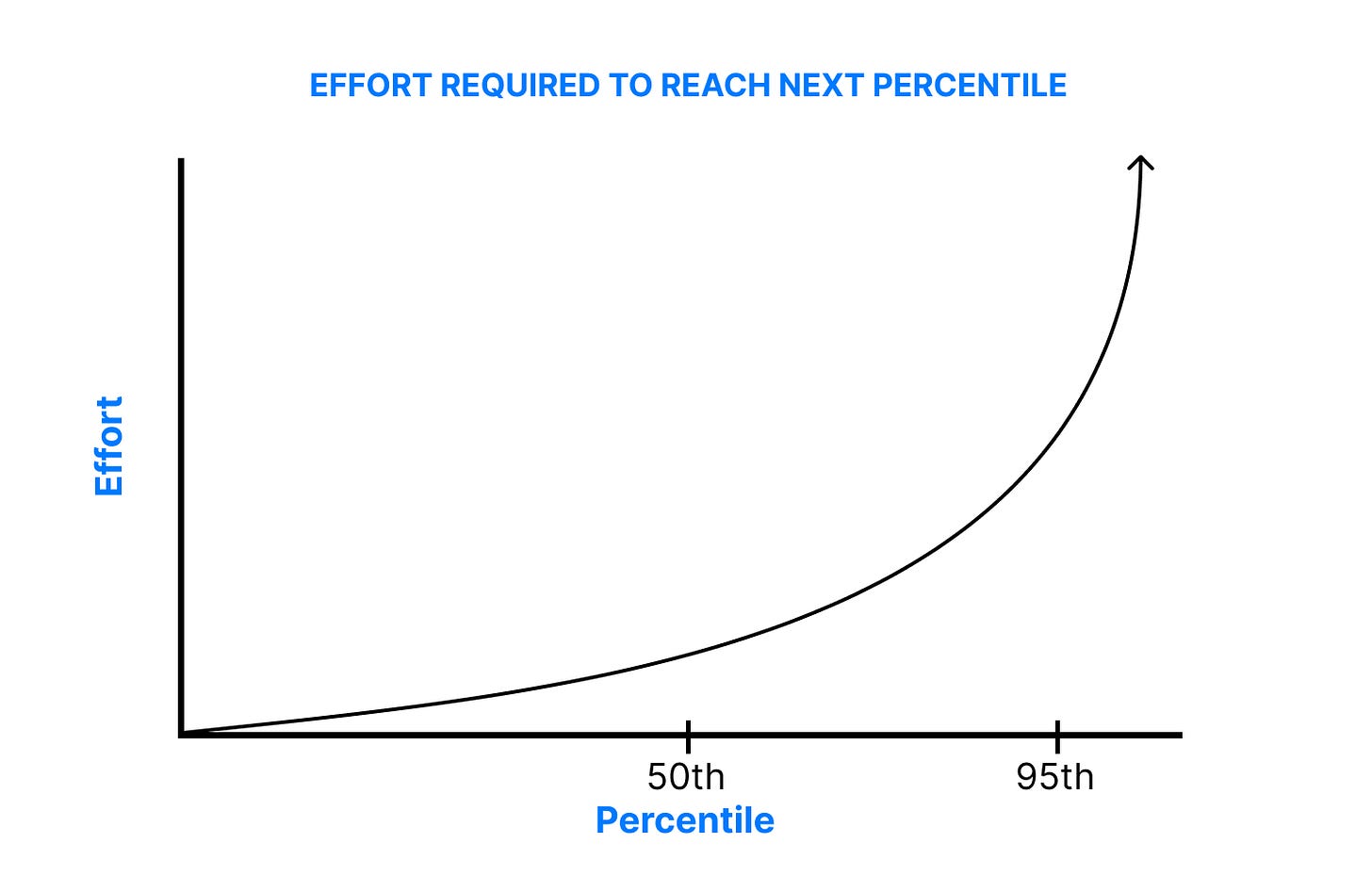
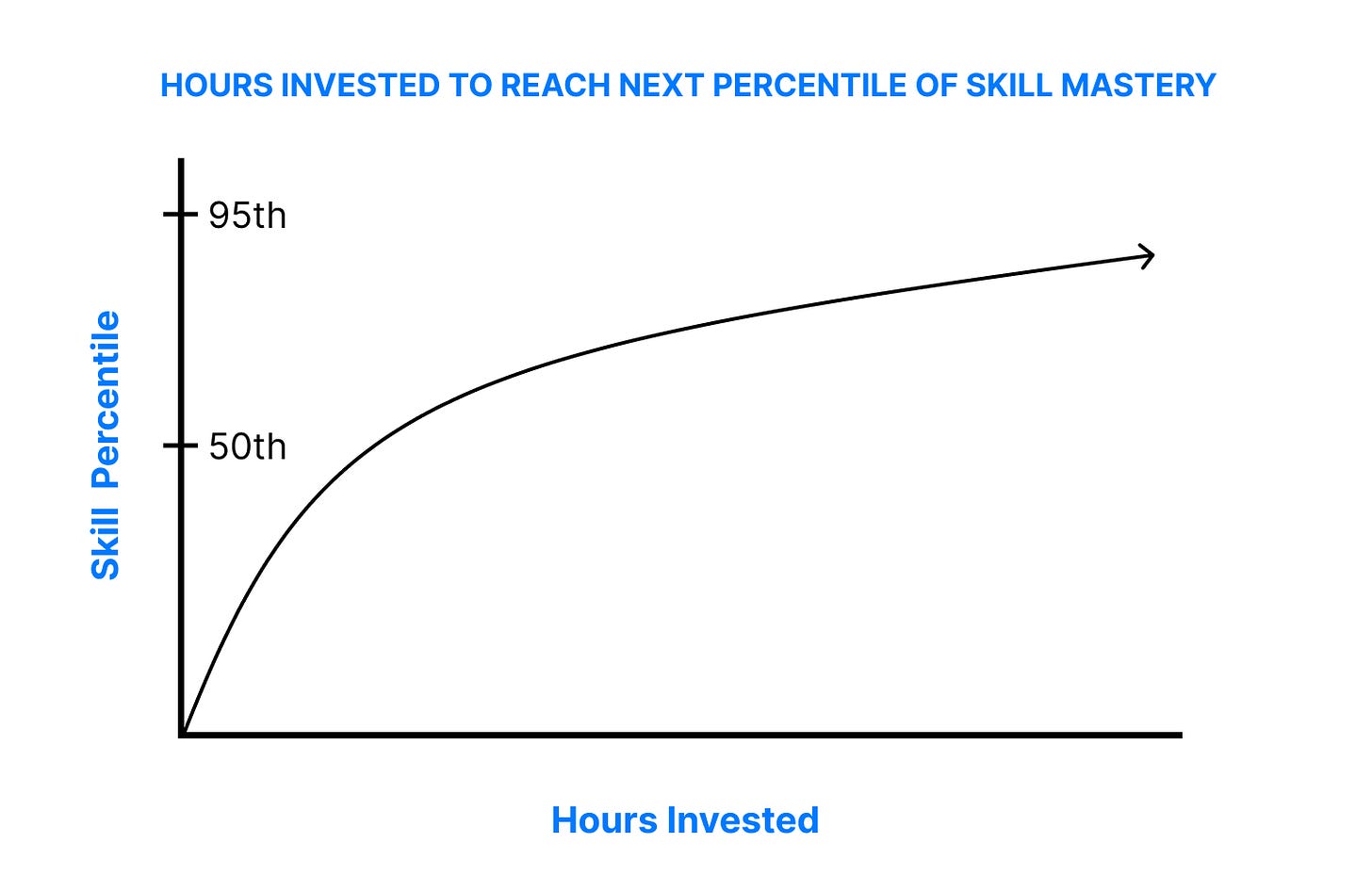
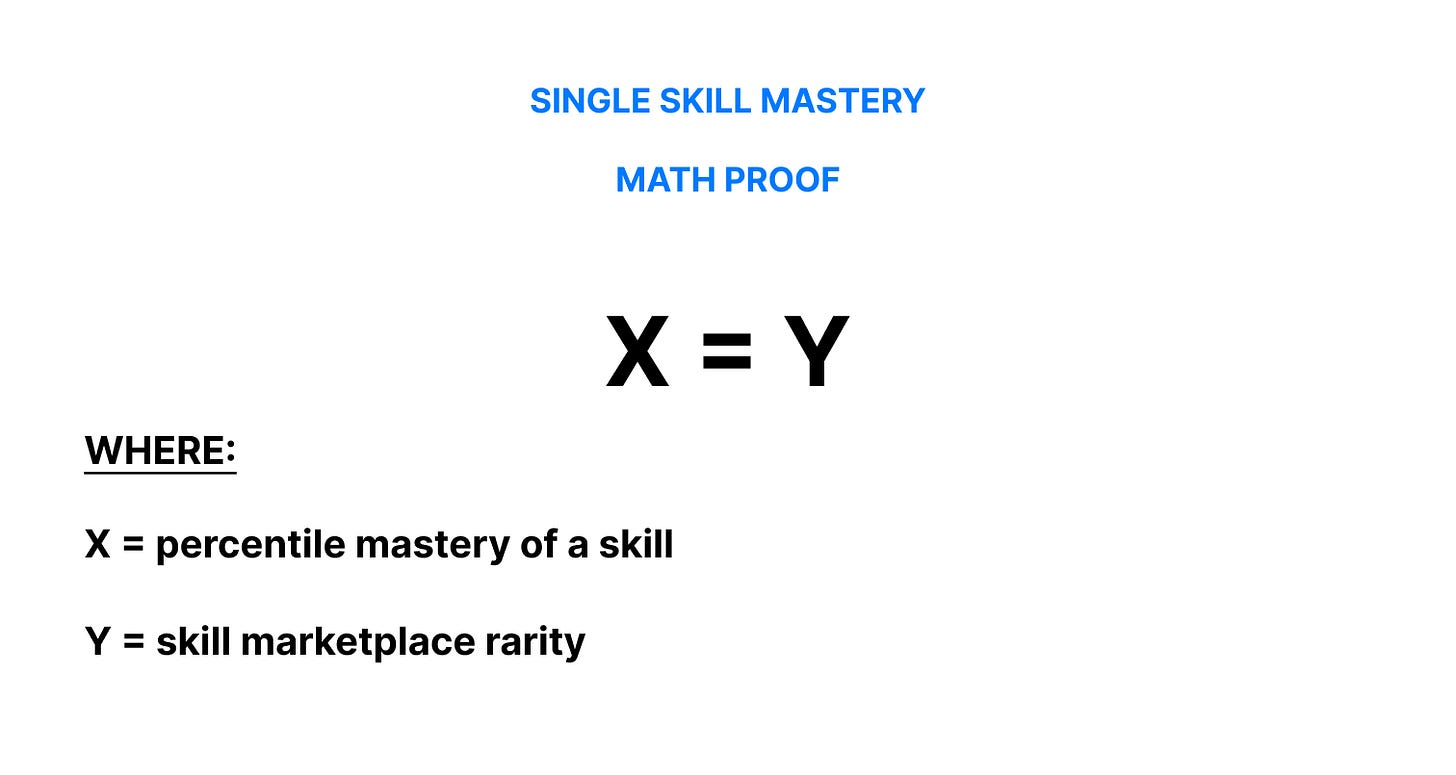
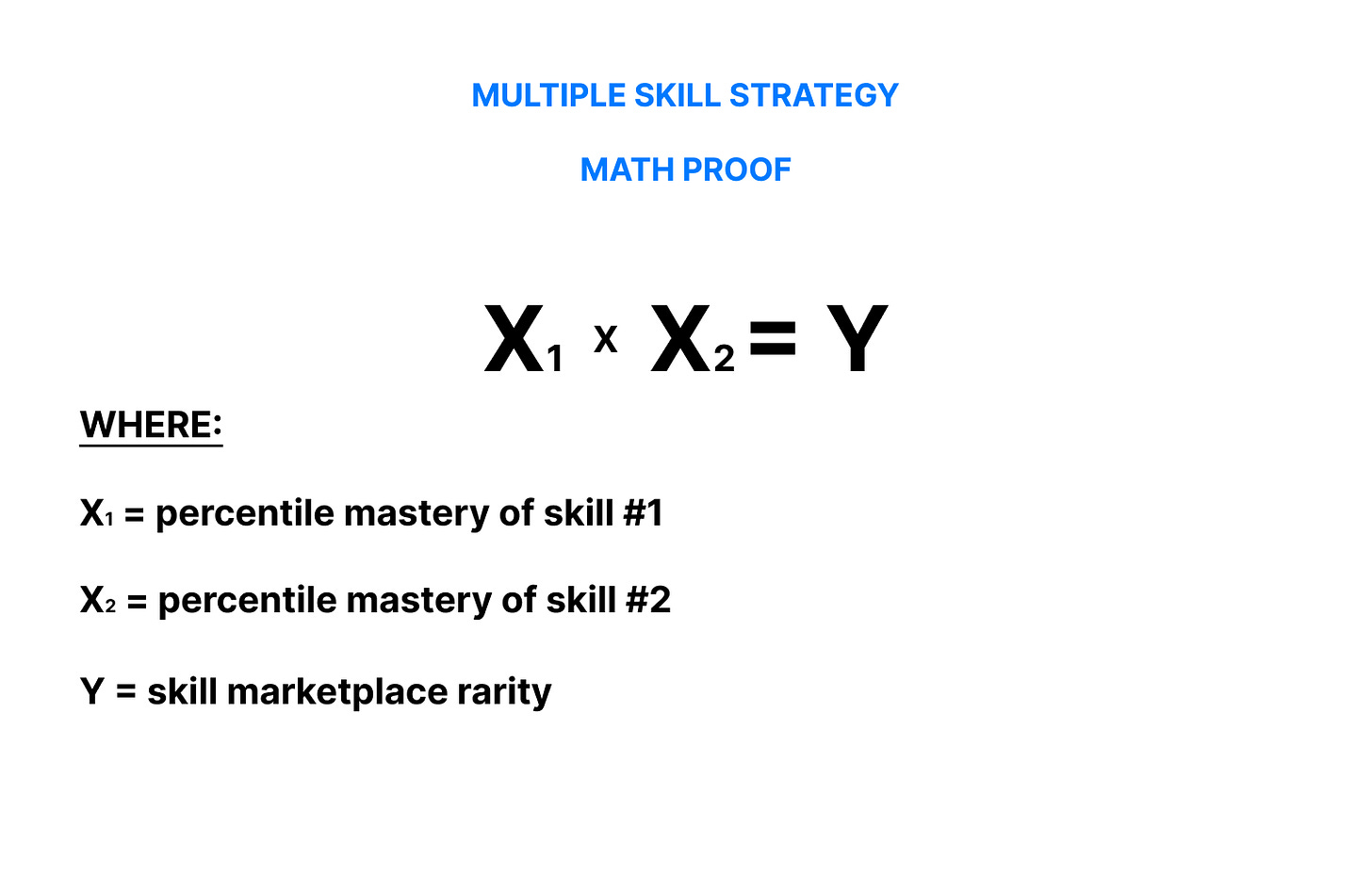
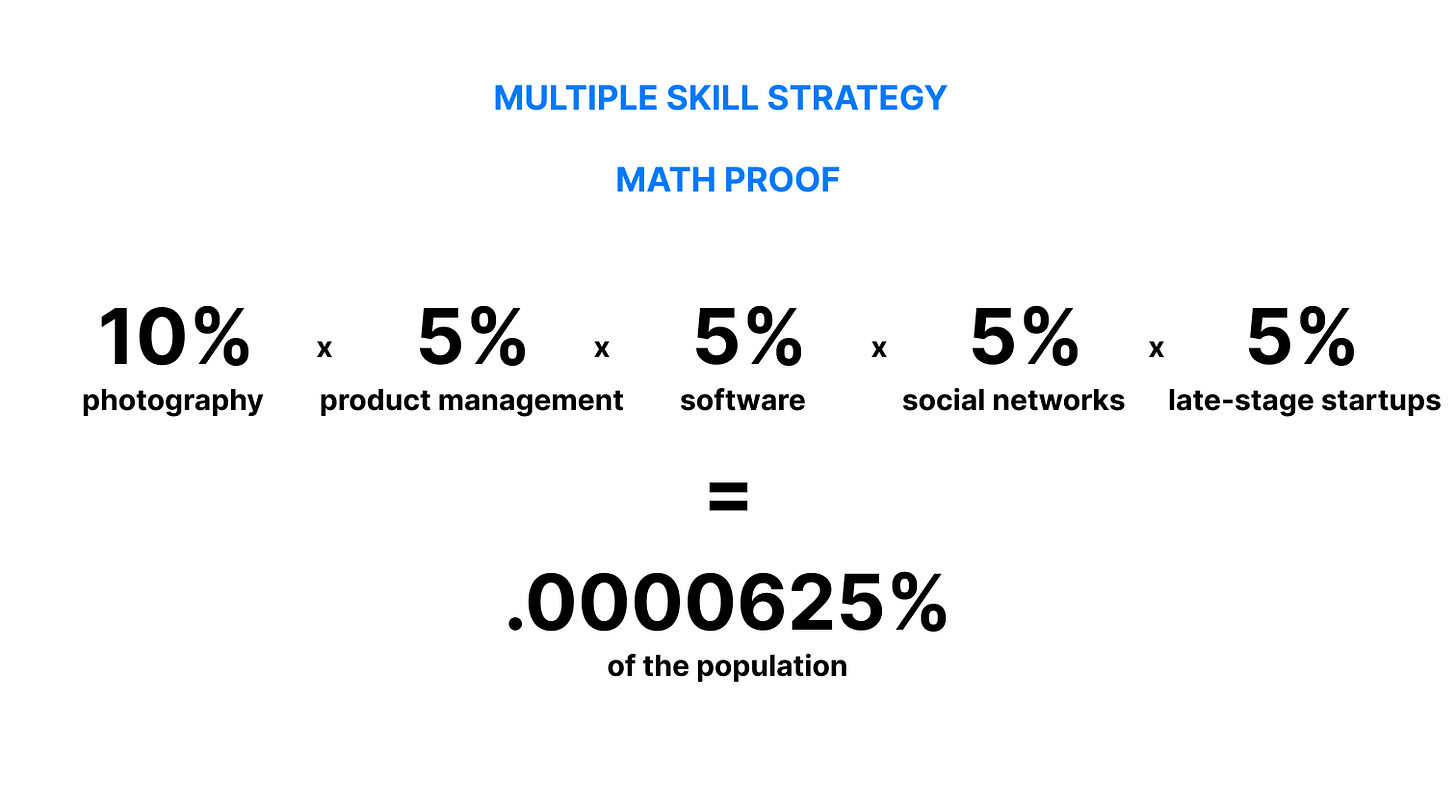
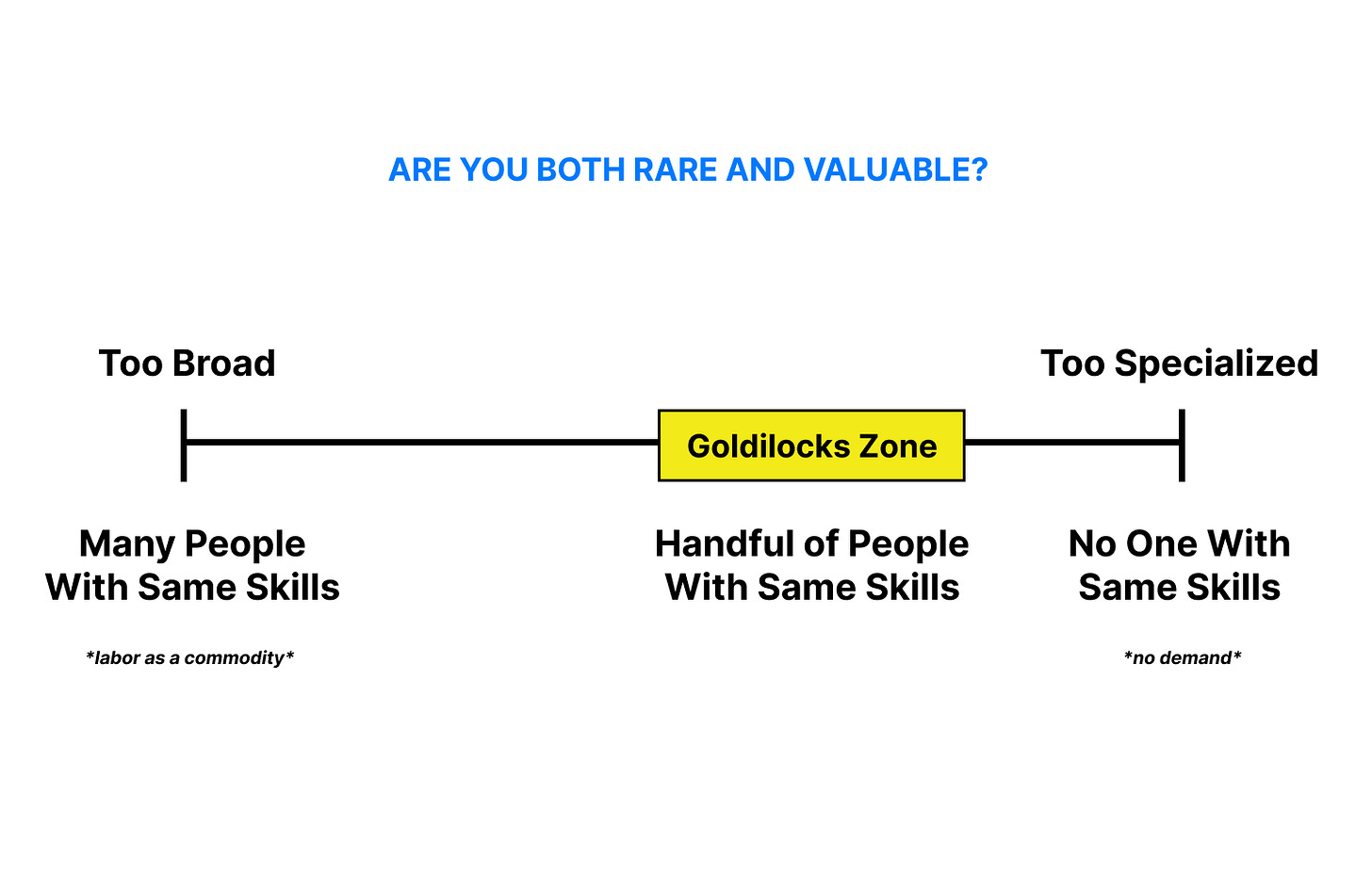
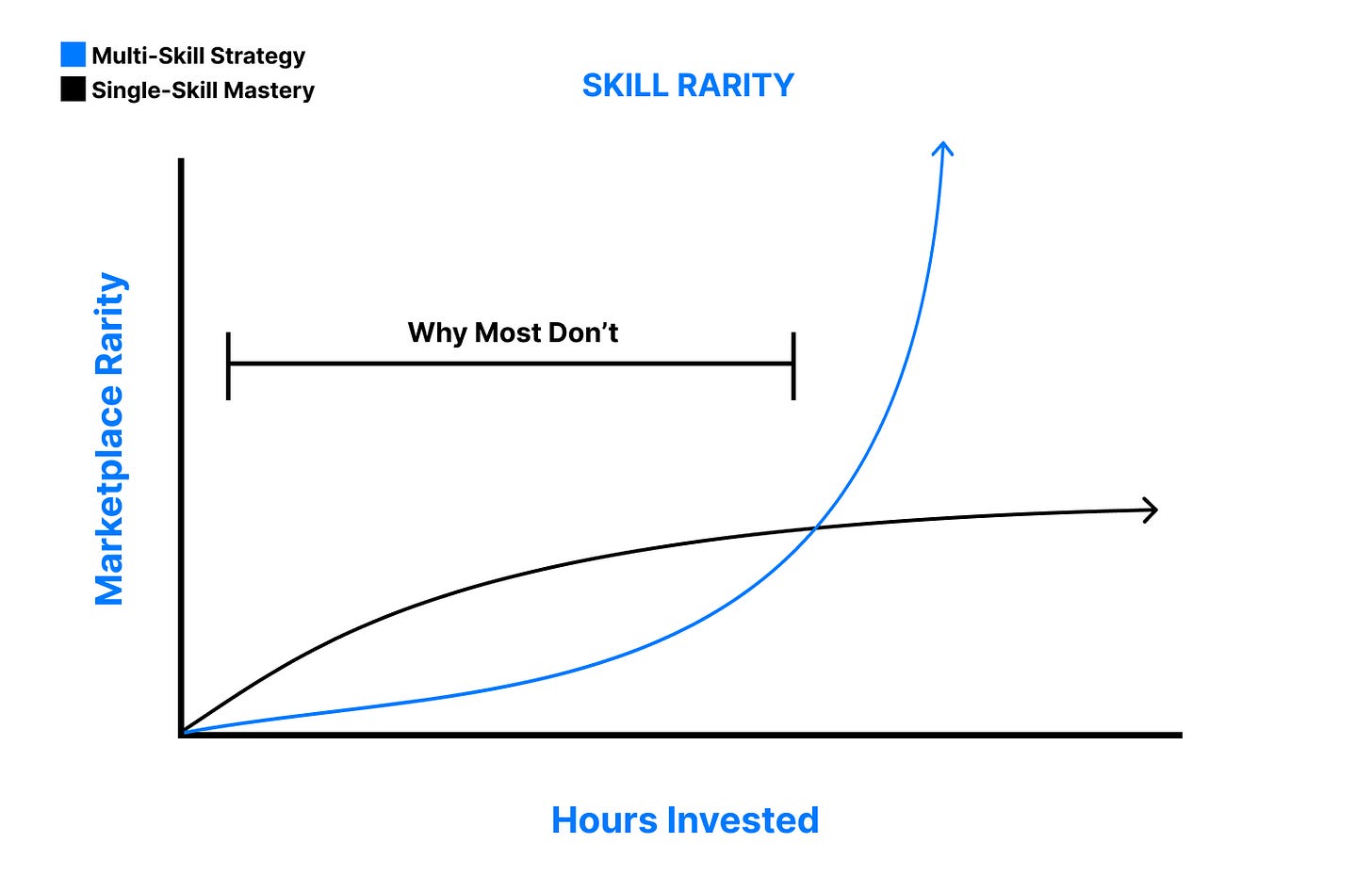
This is honestly so gas.